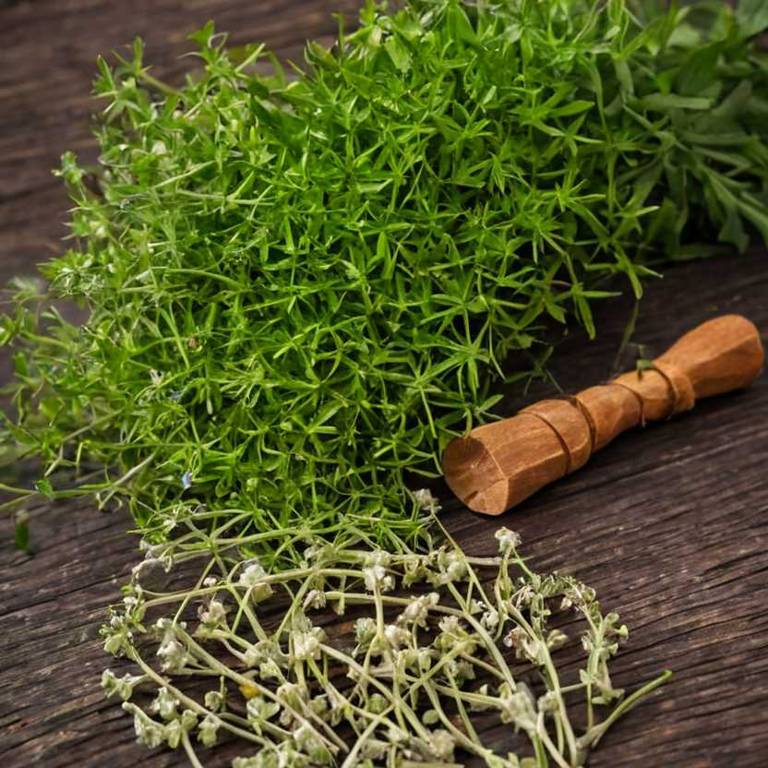Bupleurum Root (Bupleurum falcatum)
Bupleurum Root (Bupleurum falcatum) is a member of the Apiaceae family, native to China, Korea, and Japan. Traditionally, its roots, rhizomes, and stems have been used for decoctions, infusions, and powders.
This herb is particularly valued for its anti-inflammatory, bitter, and antispasmodic actions, and has a long history of use in traditional chinese medicine, japanese kampo medicine, and european herbal medicine.

Quick Facts / Key Information
| Common Name | Bupleurum Root |
|---|---|
| Scientific Name | Bupleurum falcatum |
| Plant Family | Apiaceae |
| Genus | Bupleurum |
| Species | falcatum |
| Native Range | China, Korea, Japan |
| Plant Parts Used | Roots, Rhizomes, Stems |
| Primary Medicinal Actions | Anti-Inflammatory, Bitter, Antispasmodic |
| Primary Traditional Systems | Traditional Chinese Medicine, Japanese Kampo Medicine, European Herbal Medicine |
| Historical Preparation Methods | Decoction, Infusion, Powder |
Botanical Identity
- Scientific Name
- Bupleurum falcatum
- Common Name
- Bupleurum Root
- Synonyms / Alternative Names
- Wild Chervil, Bupleurum Falcatum Is Commonly Known As 'Chinese Thorn-Apple' Or 'Chinese Belladonna', Gypsywort
- Plant Family
- Apiaceae
- Genus
- Bupleurum
Botanical Description
- Growth Habit
- Perennial herbaceous plant.
- Height
- It typically grows to a height of 30 to 100 centimeters.
- Leaves
- Linear leaves with upper surface glaucous green and lower surface pale green, featuring distinct stomatal bands along the midrib.
- Flowers
- Radially symmetrical flowers with five white petals and five yellow stamens arranged in a solitary inflorescence.
- Stems
- Cylindrical, hollow, ribbed, glabrous, terete, ascending, dichotomous branching, succulent, angular, herbaceous.
Traditional Uses / Historical Use
Traditional Systems
- Traditional Chinese Medicine
- Japanese Kampo Medicine
- European Herbal Medicine
- Korean Traditional Medicine
Historical Preparation Methods
- Decoction
- Infusion
- Powder
- Tincture
Medicinal Actions
- Anti-inflammatory
- In herbal texts, considered a calming anti-inflammatory, in tissue-soothing contexts.
- Bitter
- Traditionally described as a soothing bitter, in taste-driven classifications.
- Antispasmodic
- Historically regarded as a gentle antispasmodic, for cramp-focused discussions.
- Tonic
- As described in traditional systems, a mild tonic, for foundational support.
Active Compounds
- Flavonoid
- Plant-based polyphenolic compounds frequently distributed throughout aerial plant parts.
- Glycoside
- Naturally occurring metabolites distributed across many plant species.
- Terpenoid
- Naturally occurring metabolites widely distributed in leaves, flowers, and roots.
- Saponin
- Secondary plant compounds composed of sugar-linked aglycones.
Modern Research Overview
Scientific research related to this plant is ongoing. This section will be expanded in the future to include summaries of phytochemical studies, laboratory research, and other relevant scientific literature as it becomes available.
Safety & Contraindications
- General Precautions
- Precautionary considerations have been reported in relation to this herb.
- Contraindications
- Some conditions have been cited as contraindications for the use of this herb.
- Allergies
- Sensitivity or allergy-related effects have not been clearly established.
- Drug Interactions
- Interactions with prescription medications have not been well documented.
- Toxicity
- Reports indicate that this herb may exhibit toxic properties in some contexts.
- Pregnancy & Breastfeeding
- Information addressing pregnancy and breastfeeding-related safety for this herb is limited.
Preparation & Usage Methods
- Infusion
- A preparation method involving steeping plant material in heated water for a short period.
- Decoction
- This method uses sustained heat to extract compounds from firm plant structures.
- Poultice
- This method uses direct contact between plant material and the skin.
- Tincture
- This method preserves plant compounds using an alcohol-based solution.
- Powder
- Powdered preparations use finely milled plant parts.
Growing, Harvesting & Storage
Growing / Cultivation
- Soil
- Prefers loamy soil with well-drained conditions. Typically grows best in organically rich soils.
- Sunlight
- Thrives in partial shade. Tolerates full sun to partial shade.
- Watering
- Prefers well-balanced moisture levels. Tolerates periodic dry conditions.
Medical Disclaimer
The information provided on this page is for educational and informational purposes only. It is not intended to diagnose, treat, cure, or prevent any medical condition. Always consult a qualified healthcare professional before using any herb for medicinal purposes.